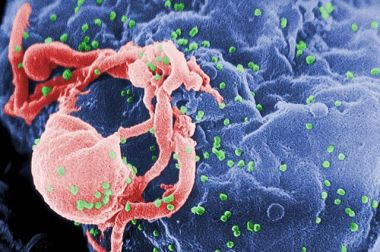HIV/AIDS cure news: Lewis Katz School of Medicine develops technology to remove HIV-1 DNA infected cells

Thirty-five years after the first case of Human Immunodeficiency Virus/ Acquired Immunodeficiency Syndrome or HIV/AIDS was documented, a cure for the widespread disease remains out of reach.
A recent breakthrough in a research from Temple University, however, proves that an HIV/AIDS cure might soon be developed.
The university's Lewis Katz School of Medicine managed to extract the HIV-1 DNA from infected cells from the genomes of living animals.
According to the research's lead investigator Dr. Kamel Khalili, HIV treatment at the moment involves antiretroviral drug therapy, which merely suppresses HIV replication.
The ability of Lewis Katz School of Medicines' gene editing technology to remove the HIV-1 DNA infected cells without damaging the host cells could be a start of the development of a new type of treatment, possibly a cure.
The researchers used recombinant adeno-associated viral (rAAV) vector delivery system to deliver their gene-editing technology the living animals.
"The ability of the rAAV delivery system to enter many organs containing the HIV-1 genome and edit the viral DNA is an important indication that this strategy can also overcome viral reactivation from latently infected cells and potentially serve as a curative approach for patients with HIV," Khalili said.
Apart from removing HIV-1 DNA infected cells from patients, the gene-editing tech can also be used in conjunction with antiretroviral drugs to further boost the suppressing effects as well as target mutated strains of HIV-1.
Lewis Katz School of Medicines plans to do clinical trial "within the next several years." To further discover the potentials of the gene-editing technology, the researchers will conduct a study on a larger group of animals.
The San Francisco VA Medical Center, on the other hand, is finding a way to boost the immune system enough to destroy the virus and make the antiretroviral drugs more effective.











